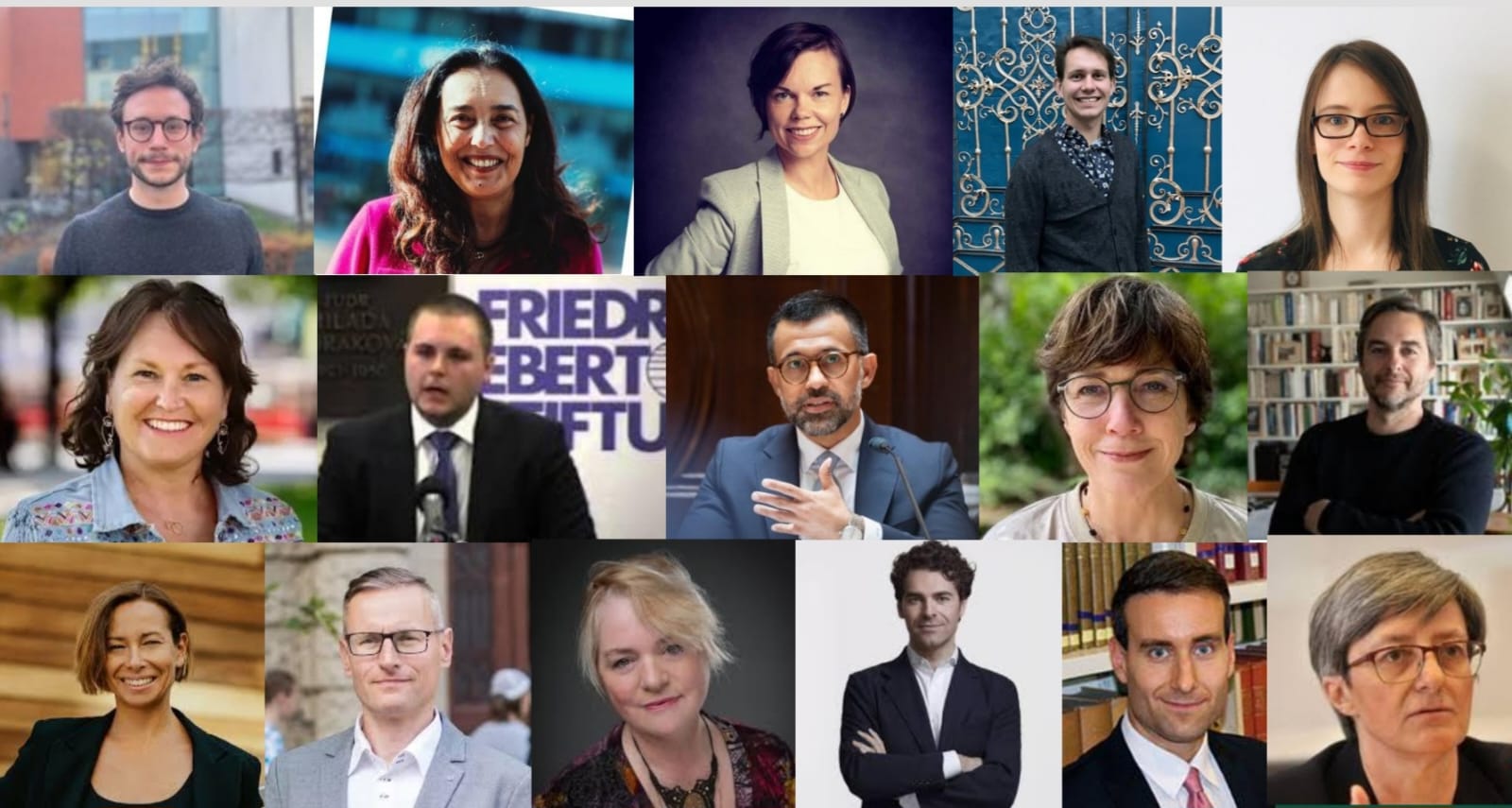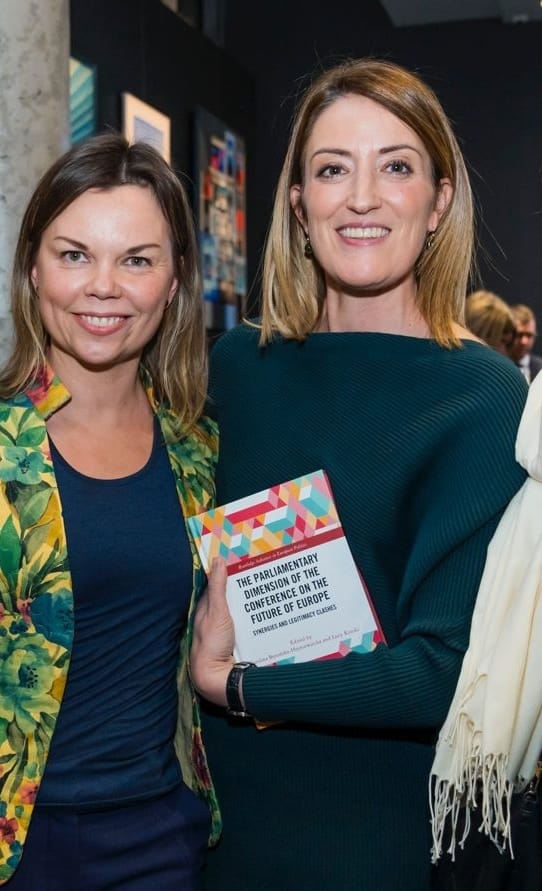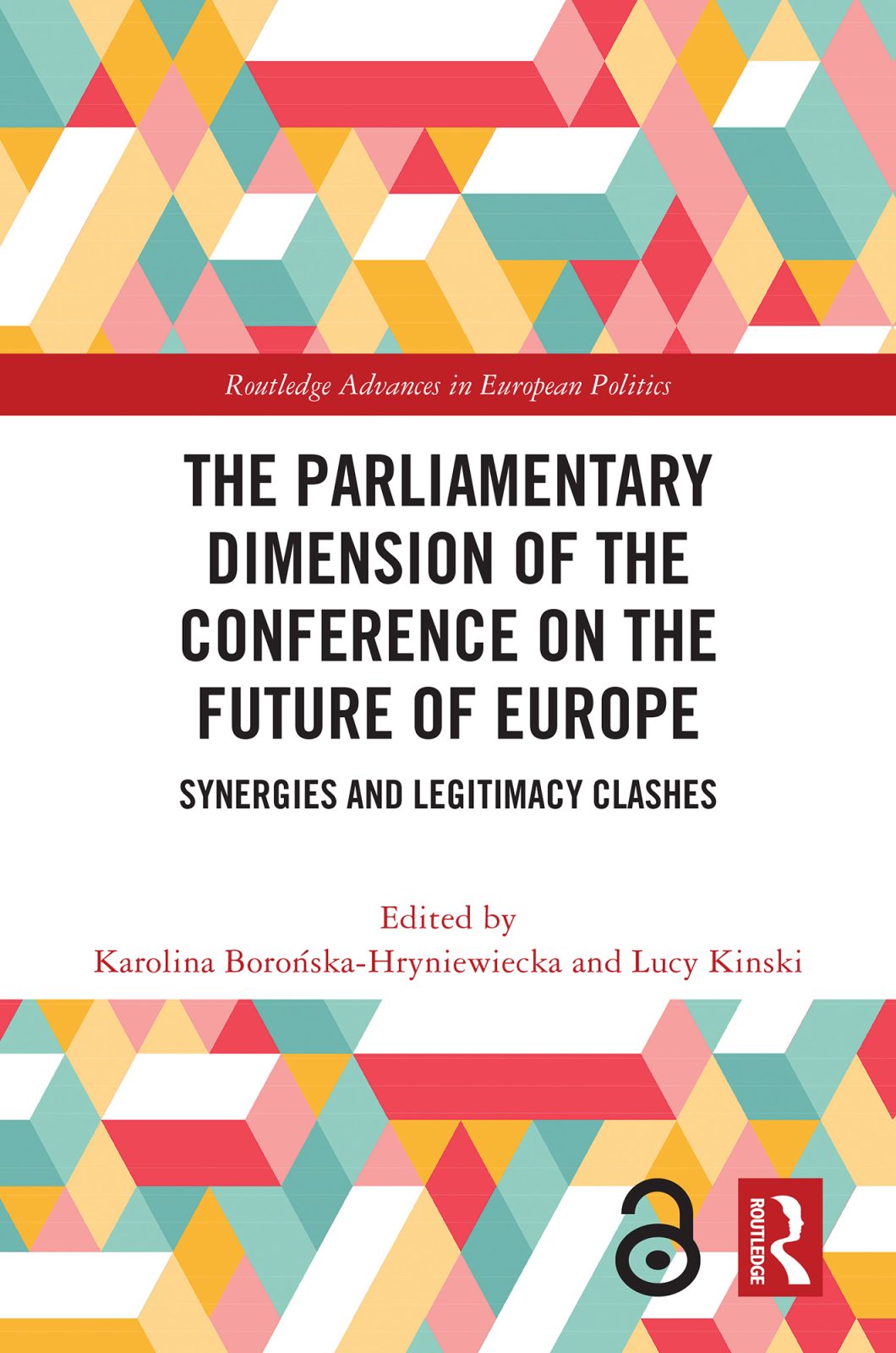
On the dimensions of EU democracy
Good science isn’t just about publishing and citability, it’s also about getting the results of our research out to institutions that have a say in shaping reality, including those that are the objects of our research. It is very important, therefore, that the results of the research work of our UWr political scientist dr hab. Karolina Borońska-Hryniewiecki, prof. UWr, have reached the President of the European Parliament herself, Roberta Metsola.
Karolina Borońska-Hryniewiecka is the co-editor (with Ludy Kinski, Salzburg University) of a book titled “Parliamentary Dimension of the Conference on the Future of Europe: synergies and legitimacy clashes” published by Routledge in October 2024.
This publication-the result of the work of an international group of 13 male and female researchers-is the first international comparative study of the involvement of the European Parliament and national parliaments in the Conference on the Future of Europe-an unprecedented transnational process of democratic deliberation and civic consultation organized by the European Union institutions in 2021-2022. The publication is also one of the results of an OPUS research grant from the National Science Centre, headed by prof. Karolina Borońska-Hryniewiecka.
What is the book about?
Despite valid criticism of the process itself and the methodology of the Conference on the Future of Europe, there is no doubt that it provided democracy researchers with the first such vivid case study of the confluence of the representative (parliamentary) and participatory (civic) dimensions of EU democracy. – Let us remember that the European Union is based on representative democracy, the directly elected pillars of which are the supranational European Parliament on the one hand and the national parliaments of the member states on the other – says our researcher.
The purpose of the book is to analyse how the European Parliament, national parliaments and regional parliaments have engaged in the Conference process and its follow-up, using it as an opportunity to fulfill their democratic functions of representation, agency and co-determination of public policy.
Undertaking this analysis, in the book’s eleven chapters the authors describe, explain and evaluate the emerging synergies and clashes of legitimacy between the representative and participatory dimensions of EU democracy. In doing so, they pose questions about the future and direction of the EU’s evolution as a democratic multi-level political system.
As leading scholar of European democracy, professor at the European University Institute in Florence, Kalypso Nicolaidis, wrote in her foreword to the book: – “Readers, whether you have long been asking or are asking anew about the state of European democracy, whether you believe against all odds that parliaments can have a decisive impact on the health of our democracies … or whether you are a skeptic or a fan of people’s power – this is a book you must read, especially after the 2024 European Parliament elections.”
Thanks to funding received from the IDUB of the University of Wrocław and Salzburg University, the book, as well as its individual chapters, are available for download in open access: Parliamentary Dimension of the Conference on the Future of Europe: Synergies and Legitimacy Clashes.
We invite you to read more!
Who received the NCN Description in this year’s latest handout read here:
Our researchers with subsequent NCN grants
Who received grants in the IDUB’s just-concluded venal competition read here:
Internal grants – RESULTS – University of Wrocław
Complied by kg
Date of publication: 9.12.2024.
Added by: M.J.


Data publikacji: 9.12.2024.
Dodane przez: M.J.



